Storing fresh herbs correctly is crucial for maintaining their flavor and extending their shelf life. Whether you’re an avid gardener or someone who loves cooking with fresh ingredients, knowing how to preserve herbs can make a significant difference in your culinary creations. In this comprehensive guide, we’ll explore the ultimate ways to store fresh herbs, ensuring they stay fresh and flavorful for as long as possible.
Selecting Fresh Herbs
Choosing the freshest herbs is the first step in ensuring they last longer. Fresh herbs will have a vibrant color, firm stems, and a strong aroma. Here’s how to select the best herbs:
Signs of Freshness
- Color: Look for bright green leaves without any yellowing or browning.
- Texture: The leaves should be firm and crisp, not wilted or soggy.
- Aroma: Fresh herbs will have a strong, pleasant fragrance.
Harvesting from Your Garden
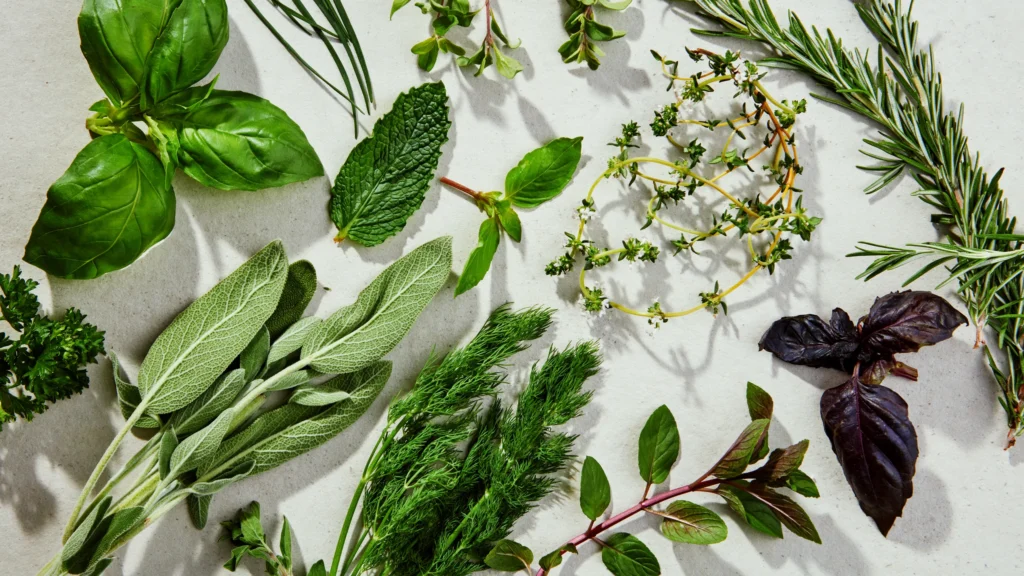
If you’re growing herbs at home, follow these tips for harvesting:
- Time of Day: Harvest herbs in the morning after the dew has dried but before the sun is too hot.
- Method: Use sharp scissors or pruning shears to cut the stems, and avoid pulling or tearing the plant.
Preparation Before Storage
Properly preparing your herbs before storing them can significantly extend their shelf life. Follow these steps to prepare your herbs:
Cleaning Herbs
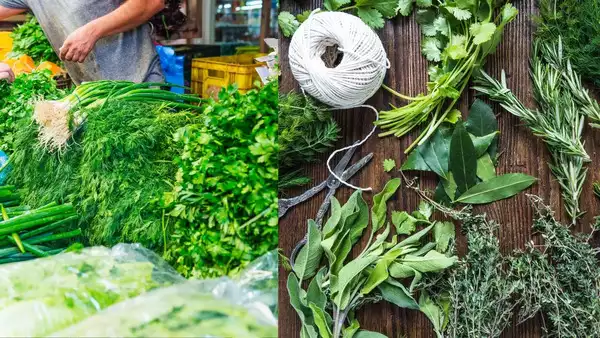
- Rinse: Gently rinse herbs under cool water to remove dirt and insects.
- Dry: Pat the herbs dry with a clean towel or use a salad spinner to remove excess water.
Removing Damaged Parts
- Inspect: Check for any damaged or discolored leaves and remove them.
- Trim: Cut off any tough stems, as they can make the herbs spoil faster.
Storing Herbs in the Refrigerator
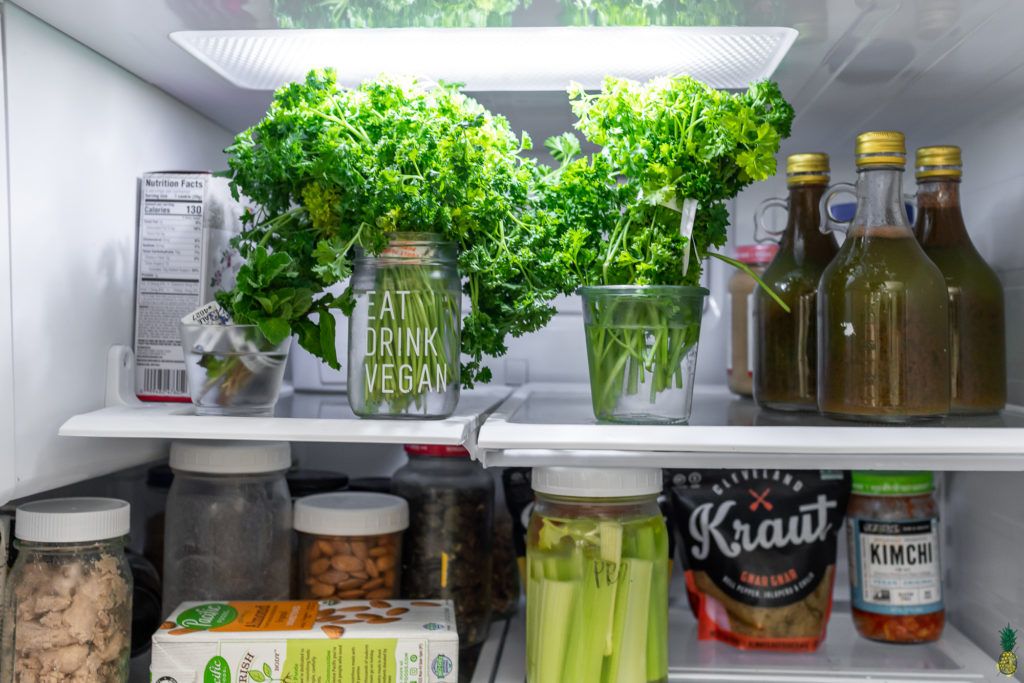
Refrigeration is one of the most common methods for storing fresh herbs. Here’s how to do it effectively:
Damp Paper Towels
- Method: Wrap the herbs in a damp paper towel and place them in a plastic bag or container.
- Why it Works: The moisture from the paper towel helps keep the herbs hydrated without making them soggy.
Plastic Bags or Containers
- Containers: Use airtight plastic containers or resealable plastic bags to store the herbs.
- Labeling: Label the containers with the type of herb and the date of storage to keep track.
Best Herbs for Refrigeration
- Parsley: Stays fresh for up to two weeks.
- Cilantro: Lasts up to two weeks.
- Basil: Can be refrigerated, but use within a week for best flavor.
Freezing Fresh Herbs
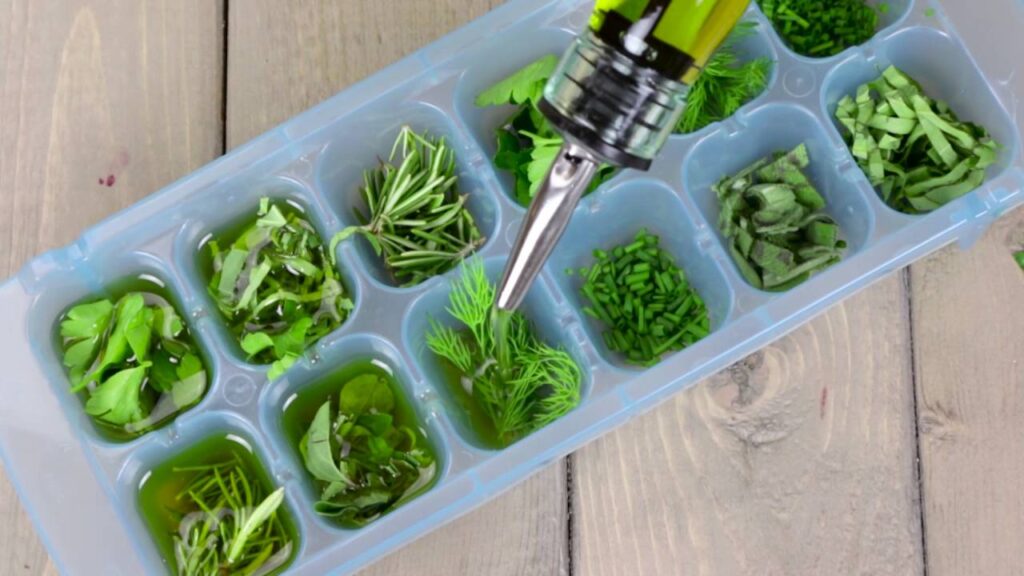
Freezing is a great way to store herbs for long-term use. This method locks in flavor and nutrients.
Methods for Freezing
- Whole or Chopped: Freeze herbs whole or chop them into smaller pieces.
- Ice Cube Trays: Place chopped herbs in ice cube trays, fill with water or olive oil, and freeze.
Best Herbs for Freezing
- Dill: Maintains flavor and texture well.
- Thyme: Freezes well without losing aroma.
- Rosemary: Holds up well in the freezer.
Labeling and Storing
- Labels: Label the freezer bags or containers with the type of herb and the date.
- Storage: Store frozen herbs in airtight containers to prevent freezer burn.
Drying Fresh Herbs
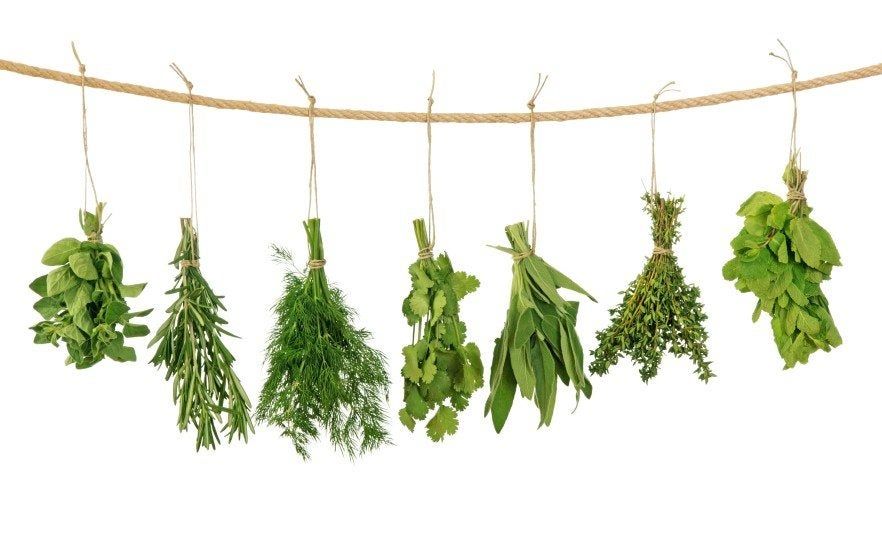
Drying is another excellent method for preserving herbs, especially those that don’t freeze well.
Air Drying vs. Dehydrator
- Air Drying: Bundle herbs together and hang them upside down in a cool, dry place.
- Dehydrator: Use a dehydrator to speed up the drying process, which is especially useful in humid climates.
Best Herbs for Drying
- Oregano: Retains its strong flavor when dried.
- Sage: Dries well and keeps its aroma.
- Mint: Perfect for drying and using in teas.
Storing Dried Herbs
- Containers: Store dried herbs in airtight containers away from light and heat.
- Labeling: Label the containers with the type of herb and the date of drying.
Using Herb-Infused Oils and Butters
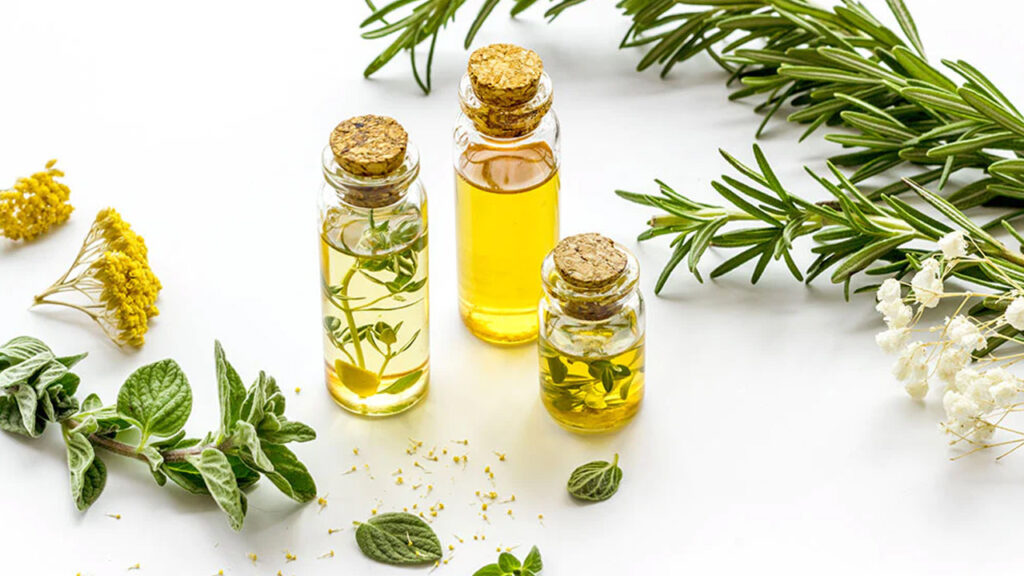
Infusing oils and butters with fresh herbs is a great way to preserve their flavors and add a gourmet touch to your dishes.
Simple Recipes
- Herb-Infused Oil: Add fresh herbs to olive oil and let sit for a few weeks. Strain before using.
- Herb-Infused Butter: Mix chopped fresh herbs into softened butter, then refrigerate or freeze.
Storage Tips
- Oils: Store herb-infused oils in the refrigerator to extend their shelf life.
- Butters: Freeze herb-infused butters in small portions for easy use.
Storing Herbs in Salt or Sugar
Storing herbs in salt or sugar is an old-fashioned method that works surprisingly well.
Preservation Method
- Salt: Layer fresh herbs with coarse salt in an airtight container.
- Sugar: Layer fresh herbs with granulated sugar in an airtight container.
Best Herbs for Salt/Sugar Preservation
- Lavender: Perfect for preserving in sugar.
- Rosemary: Great for storing in salt.
- Mint: Works well in both salt and sugar.
Using Preserved Herbs
- Cooking: Use salt or sugar-preserved herbs in recipes to add flavor.
- Garnishing: Sprinkle on dishes for a flavorful finish.
Frequently Asked Questions
Can I store all herbs the same way?
No, different herbs have different storage needs. Refer to the sections above for the best storage methods for each type of herb.
How long do stored herbs last?
The shelf life of stored herbs varies. Refrigerated herbs last 1-2 weeks, frozen herbs can last up to 6 months, and dried herbs can last up to a year.
Are there any herbs that don’t store well?
Some delicate herbs like basil don’t store well for long periods and are best used fresh.
Tips for using stored herbs in recipes
- Use sparingly: Stored herbs can have a concentrated flavor, so use less than you would fresh herbs.
- Revive dried herbs: Soak dried herbs in water before using to rehydrate them and release their flavors.
Conclusion
Properly storing fresh herbs can greatly enhance their flavor and extend their usability. Whether you choose to refrigerate, freeze, dry, or infuse your herbs, following these methods will help you keep them fresh and flavorful. Happy cooking!
External Resources for Herb Storage
- Herb Storage Containers on Amazon
- YouTube Tutorial on Herb Preparation and Storage
- Gardening Expert Articles on Herb Storage
- Gardening Community on Reddit
- Herb Recipes on Allrecipes
Let me know if you need any further adjustments or additional sections!

